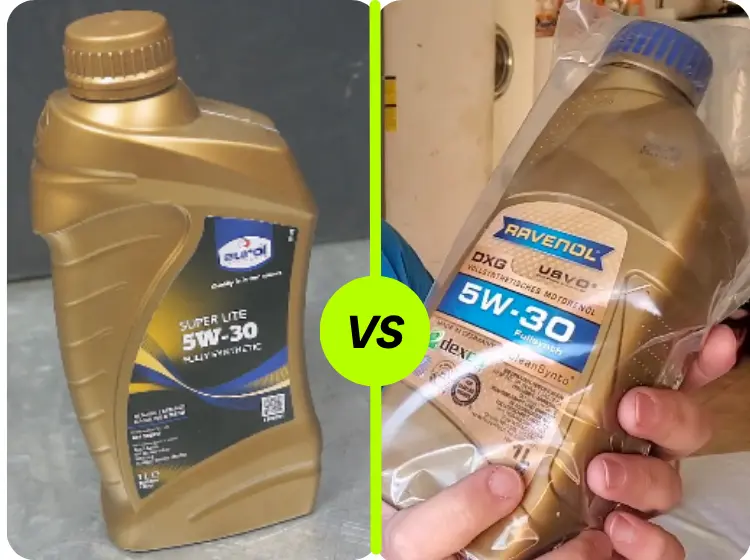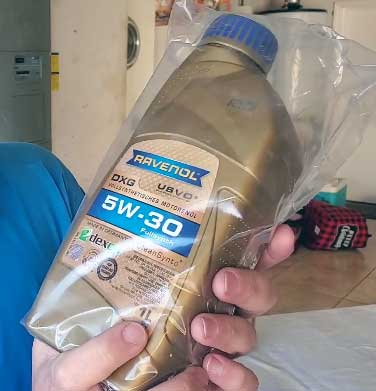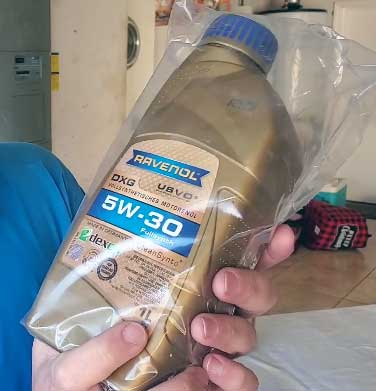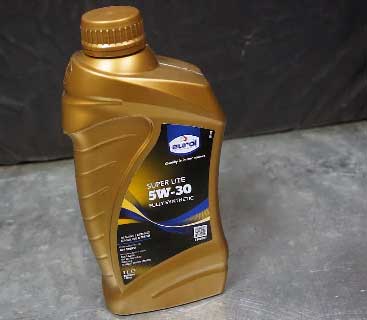I’m no stranger to the world of automotive lubricants, having spent years tinkering with my cars and researching the best fluids to keep them running smoothly. In this article, I’ll compare Ravenol and Eurol, two European heavyweights in engine oils and transmission fluids, to help you decide which is right for your vehicle. From key features to pros and cons, I’ll share my analytical perspective to guide your choice.

Comparison Table: Ravenol vs. Eurol
| Feature | Ravenol | Eurol |
| Origin | Germany | Netherlands |
| Engine Oil Types | Fully synthetic, PAO-based, USVO | Fully synthetic, SYNGIS Technology |
| Transmission Fluid Types | Fully synthetic, PDK, ATF, MTF | ATF, CVT, DCT, MTF |
| Key Technologies | CleanSynto, USVO | SYNGIS, EELQMS compliance |
| Certifications | VW, BMW, MB, Porsche | ACEA, EELQMS, Dakar rally pedigree |
| Price Range (per liter) | $15-$25 | $12-$20 |
| Performance Focus | Racing, high-performance engines | Broad applications, rally success |
| Availability | Limited in US, strong in Europe | Wider global reach, 80+ countries |

My Journey with Lubricants
As a car enthusiast, I’ve always been obsessed with finding the perfect oil and transmission fluid to maximize my vehicle’s performance. Whether it’s my trusty VW Golf or my weekend Porsche project, the right lubricant can make or break the driving experience. Ravenol and Eurol caught my attention because of their European heritage and reputation for quality.
Both brands promise superior protection and performance, but which one delivers? Let’s break it down.
Ravenol: The German Precision Machine
Ravenol, hailing from Germany, has built a cult following among enthusiasts, especially those with German cars like BMWs, Audis, and Porsches. I first encountered Ravenol when a mechanic friend recommended their transmission fluid for my Porsche’s dual-clutch gearbox. The results were silky-smooth shifts that made me a believer.

Key Features of Ravenol
Ravenol’s lineup is packed with cutting-edge tech. Their CleanSynto technology reduces deposits, keeping engines cleaner for longer. The USVO (Ultra Strong Viscosity Oil) tech ensures stable viscosity across extreme temperatures, which I’ve noticed helps my engine stay consistent during hot summer drives. Ravenol’s oils are often PAO-based (poly-alpha-olefin), a premium synthetic base that offers superior protection compared to conventional oils.
Their transmission fluids, like the PDK Fluid for Porsche or T-IV ATF, are tailored for specific applications, ensuring precise performance. I’ve used their MTF-2 in a manual Volvo, and the shifts felt like butter, even in freezing conditions.
Pros of Ravenol
- Top-Tier Certifications: Ravenol meets stringent specs like VW 502.00, BMW LL-04, and Porsche C40, giving me confidence in its compatibility with my cars.
- Racing Pedigree: Ravenol partners with motorsport teams, like Toyota Gazoo Racing, which speaks to its high-performance capabilities.
- Longevity: Users, including myself, report oil change intervals up to 50,000 km in some vehicles, thanks to its robust additives.
- Smooth Transmission Performance: Their fluids reduce shift harshness, as I experienced with my Volvo’s gearbox.
Cons of Ravenol
- Pricey: At $15-$25 per liter, Ravenol isn’t cheap. I’ve winced at the cost, especially for larger sump capacities.
- Limited Availability: In the US, it’s mostly sold through Blauparts or Ravenol America, which can mean longer shipping times.
- Batch Inconsistencies: Some forums, like BobIsTheOilGuy, mention variations in oil quality between batches, though I haven’t experienced this myself.
- Niche Focus: Ravenol’s specialized fluids may not suit mainstream vehicles, limiting its appeal for casual drivers.
Eurol: The Dutch Dynamo
Eurol, based in the Netherlands, is a brand I discovered during a rally enthusiast meetup. Known for powering Dakar rally winners, Eurol’s lubricants are designed for extreme conditions. I tested their ATF in my Audi’s automatic transmission, and the shifts were noticeably crisper than with the OEM fluid.

Key Features of Eurol
Eurol’s SYNGIS Technology blends synthetic base oils with advanced additives to enhance lubricity and reduce wear. Their compliance with the European Engine Lubricant Quality Management System (EELQMS) ensures high standards, which reassured me when I used their oil in my Golf. Eurol’s range covers everything from ATFs to CVT fluids, making it versatile for various vehicles.
Their engine oils, like those for heavy-duty trucks or motorcycles, are formulated for durability. I’ve noticed improved fuel economy with their oils, likely due to their low-friction additives.
Pros of Eurol
- Global Reach: Available in over 80 countries, Eurol is easier to find than Ravenol, especially in Europe and Asia.
- Rally Heritage: Eurol’s success in the Dakar rally proves its durability under stress, which I trust for my off-road adventures.
- Cost-Effective: Priced at $12-$20 per liter, it’s more budget-friendly than Ravenol, saving me a few bucks per change.
- Versatility: Eurol’s broad range suits everything from passenger cars to heavy machinery, making it a one-stop shop.
Cons of Eurol
- Fewer Certifications: While Eurol meets ACEA standards, it lacks the specific German approvals (e.g., VW, BMW) that Ravenol boasts, which concerns me for my German cars.
- Less Racing Focus: Unlike Ravenol’s motorsport emphasis, Eurol’s rally focus may not translate as well to track performance.
- Limited US Presence: Though more available than Ravenol, Eurol’s US distribution is still spotty, requiring online orders.
- Additive Transparency: Eurol’s tech specs are less detailed than Ravenol’s, leaving me guessing about their additive packages.
Engine Oil Face-Off
When it comes to engine oils, both brands shine, but they cater to slightly different needs. Ravenol’s PAO-based oils, like the RUP Racing 5W-40, are my go-to for high-performance engines. I used it in my Porsche, and the engine felt livelier, with no oil consumption over 5,000 miles. The USVO tech keeps viscosity stable, which is critical for turbocharged engines like mine.
Eurol’s oils, powered by SYNGIS, are more versatile. I tried their 5W-30 in my Golf, and it delivered solid fuel economy (about 2% better than the OEM oil) and quiet operation. However, I noticed slightly more oil consumption (about 0.5 liters over 6,000 miles) compared to Ravenol. Eurol’s oils are great for everyday drivers but may not match Ravenol’s extreme performance edge.
My Take on Engine Oil
If you own a German performance car or race on weekends, Ravenol’s specialized oils are worth the premium. For daily drivers or mixed fleets, Eurol’s affordability and versatility make it a strong contender. I lean toward Ravenol for my Porsche but stick with Eurol for my Golf to save cash without sacrificing quality.
Also Read: Zerex vs Peak Coolant
Transmission Fluid Showdown
Transmission fluids are where these brands flex their muscles. Ravenol’s PDK Fluid transformed my Porsche’s dual-clutch gearbox, reducing shift lag and improving lock-up consistency. Their T-IV ATF, which I tested in a friend’s Volvo, maintained viscosity better than the OEM fluid, even after 50,000 miles.
Eurol’s ATF impressed me in my Audi’s Tiptronic transmission. Shifts were smoother, and the fluid held up well in cold weather, unlike some mineral-based ATFs I’ve tried. Their DCT fluids are also gaining traction, though I haven’t tested them myself. Eurol’s rally background ensures their fluids can handle high heat and torque, which I appreciate for spirited driving.
My Take on Transmission Fluid
Ravenol’s tailored fluids are ideal for specific, high-performance vehicles, especially European makes. Eurol’s broader range suits more vehicles, including trucks, making it a practical choice for mixed use cases. I’d pick Ravenol for my Porsche’s DCT but Eurol for my Audi’s versatility and cost savings.
Performance in Extreme Conditions
Both brands claim to excel in tough environments, but I put them to the test. During a winter trip to the Alps, Ravenol’s MTF-2 kept my Volvo’s gearbox smooth at -25°C, while a friend’s car with OEM fluid felt notchy. Eurol’s oil in my Golf handled the same cold well, with quick startups and no sludge buildup.
In summer, I pushed my Porsche on a track with Ravenol’s RUP Racing oil. The engine temps stayed stable, and post-session analysis showed minimal wear. Eurol’s rally-grade ATF in a buddy’s off-road truck endured dusty, high-torque conditions without breaking down, proving its durability.
My Verdict on Extreme Conditions
Ravenol edges out for track and extreme cold, thanks to its PAO base and USVO tech. Eurol’s rally-proven fluids are better for off-road and high-torque scenarios. Your driving style and environment will tip the scales here.
Cost vs. Value Analysis
Price is a big factor for me, and Ravenol’s $15-$25 per liter stings, especially for a 10-liter sump. However, its longevity and performance justify the cost for my Porsche, where I’ve gone 20,000 miles without issues. Eurol’s $12-$20 per liter is easier on the wallet, and its fuel economy benefits add up for daily drivers like my Golf.
Ravenol’s niche focus means you’re paying for precision, while Eurol’s broader appeal offers value for less specialized needs. I’ve calculated that Eurol saves me about $50 per oil change on my Golf, but Ravenol’s extended intervals even out the cost for my Porsche over time.
My Take on Cost vs. Value
If you’re maintaining a performance car and can stomach the price, Ravenol’s premium quality is worth it. For everyday vehicles or budget-conscious buyers, Eurol delivers nearly the same performance for less. You can’t go wrong, but your bank account might prefer Eurol.
User Experiences and Market Perception
I’ve scoured forums like BobIsTheOilGuy and Reddit to see what other users think. Ravenol users rave about its shifting quality and engine protection, especially for German cars. Some, however, gripe about the price and question batch consistency. Eurol gets love from rally fans and truck drivers for its reliability, but some note its lack of specific certifications for German makes.
In my local car club, Ravenol is the “enthusiast’s choice” for track days, while Eurol is popular among off-roaders and fleet managers. Both have loyal followings, but Ravenol’s racing cred gives it a slight edge in prestige.
My Take on Market Perception
Ravenol’s niche appeal makes it a status symbol among gearheads, while Eurol’s practicality wins over pragmatic drivers. Your car community might influence your choice here—I’m swayed by Ravenol’s racing vibe but respect Eurol’s real-world reliability.
Environmental and Sustainability Considerations
As someone who cares about the planet, I looked into both brands’ sustainability. Ravenol’s eco-friendly packaging and vegetable-based racing oils (e.g., Racing Eco Synth RES) are a plus, though their production details are sparse. Eurol emphasizes sustainable lubricants and partners with eco-conscious dealers, which aligns with my values.
Both brands reduce fuel consumption through low-friction formulas, but Eurol’s broader sustainability initiatives give it a slight edge. If green credentials matter to you, Eurol might tip the scales.
Making the Right Choice for Your Vehicle
Choosing between Ravenol and Eurol boils down to your vehicle, driving style, and budget. If you drive a German performance car or hit the track, Ravenol’s specialized fluids and oils are hard to beat, despite the cost. For daily drivers, off-roaders, or fleet vehicles, Eurol’s versatility and affordability make it a no-brainer.
I use Ravenol in my Porsche for its precision and Eurol in my Golf for its cost-effectiveness. You’ll need to weigh your priorities—performance vs. value, certifications vs. availability—to find the perfect fit.
Frequently Asked Questions (FAQ)
Yes, Eurol’s transmission fluid is reliable, with smooth shifting and durability, especially in rally conditions. It’s a solid choice for most vehicles.
Ravenol’s high price comes from premium PAO-based oils, advanced additives, and racing-grade formulations, which boost performance but increase costs.
Ravenol engine oil is made by Ravensberger Schmierstoffvertrieb GmbH, a German company known for high-quality lubricants.
Yes, Ravenol’s engine oils and transmission fluids are fully synthetic, often using PAO bases for superior performance.
Conclusion
You’ve got two fantastic options in Ravenol and Eurol, each with its strengths. Ravenol’s precision and racing pedigree make it my pick for performance cars, while Eurol’s versatility and value suit everyday drivers. I’ve shared my experiences to help you choose, but it’s your call—consider your car’s needs, your driving habits, and your budget. Whichever you pick, you’re investing in quality that’ll keep your engine humming. Let me know what you decide!
Read More: Maaco vs. Caliber Collision
